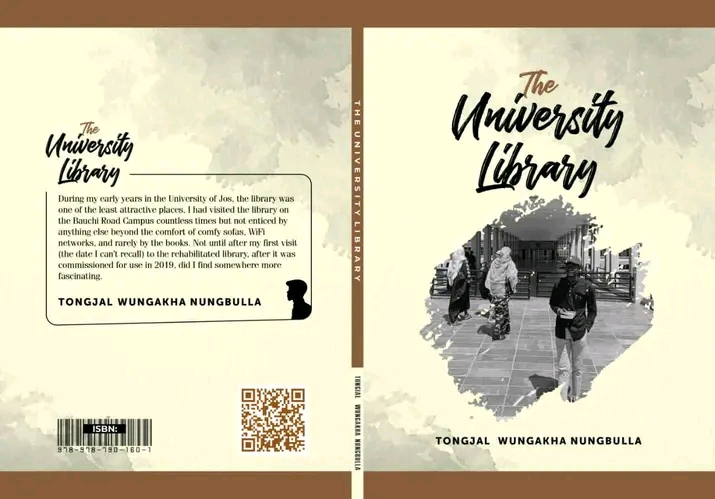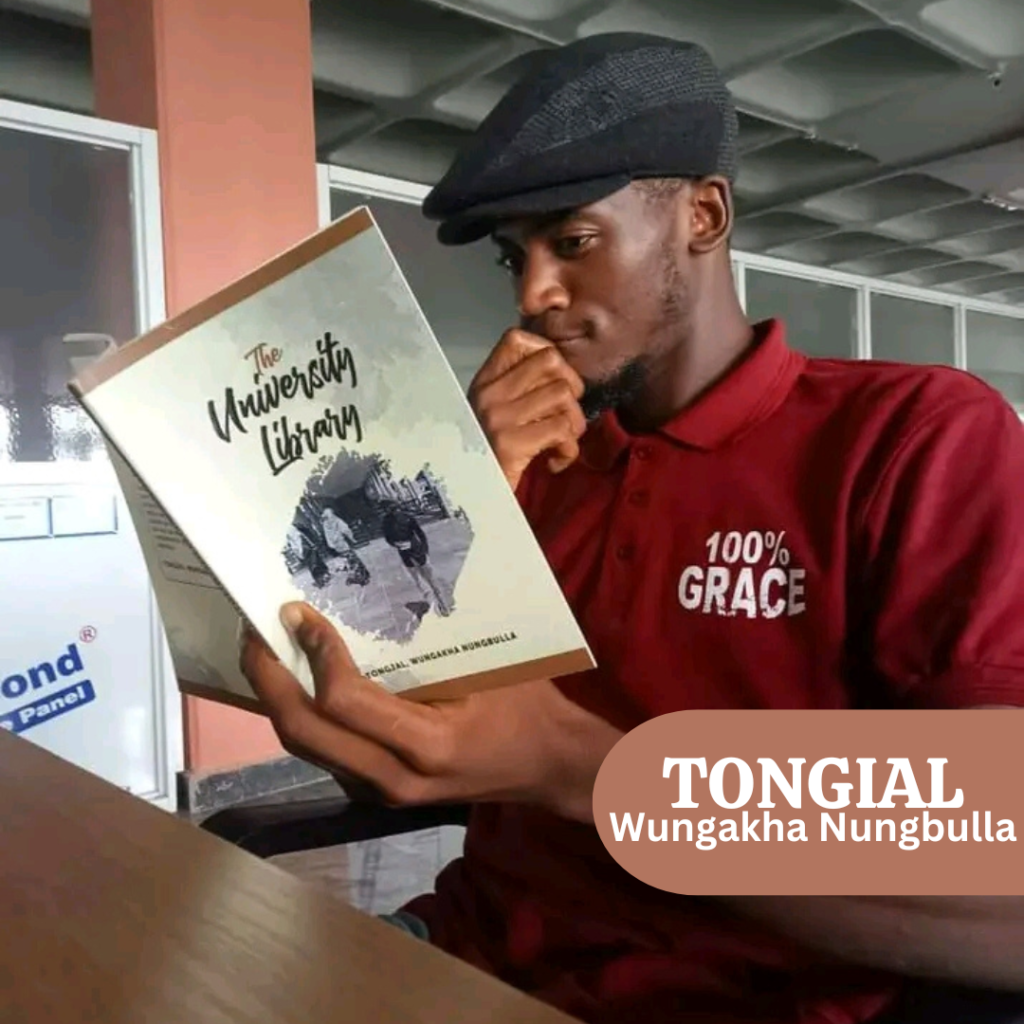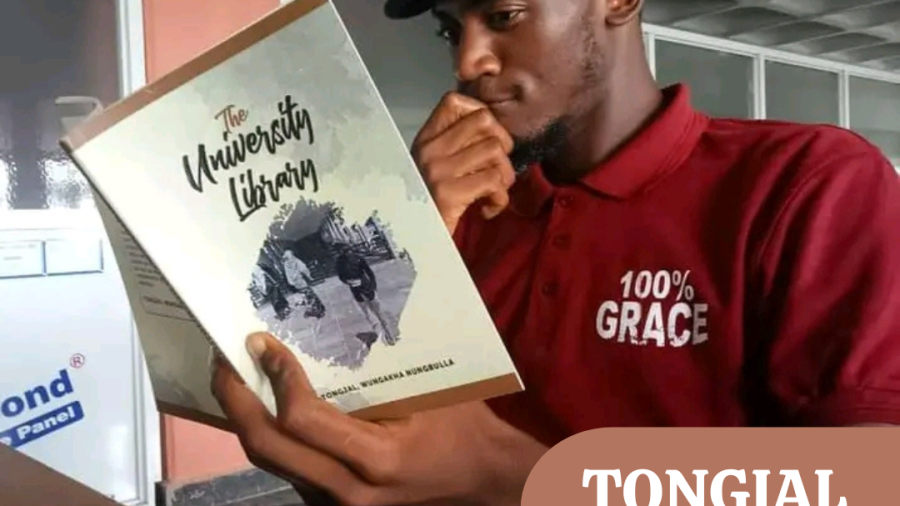
Tongial Wungakha Nungbulla is a TRCN-certified teacher, freelance writer, book designer, and tutor. Popularly called LetterMan, he is the founder of RANDOM DESPATCHES and runs a newsletter on Substack called LetterMan Despatches. He works with Walking Together and Campus Missions and Leadership Initiative (CMLi). His debut book The University Library earned him the Author of the Year Award of the Plateau Man of the Year Awards (9th edition). He is a graduate of integrated science education from the University of Jos and has a deep interest in libraries, documentation, publishing, and data analysis.
Seven question for Tongial Wunkagha.
Your book has a fresh new perspective on the idea of a university library. Where did the idea for the book come from?
While I may not be able to explicitly answer the question of where the idea came from, I can describe the circumstances around the time I started writing the book. However, I believe everything I own was given to me by God. In 2021, I had just resolved to be more consistent in practicing my craft (writing)—that is, daily. The plan was to write a review of each day in my journal in the form of a narrative essay. The first piece after that commitment is now the first chapter of my debut book The University Library. After writing the first two chapters of the book—both recollections of my experiences at the University of Jos Library—there was a break in my visit to the university library for a while. The rest of the book collections of experiences I had in the library on subsequent visits after the break since the first two chapters. In that season, I left the library after each visit with a story to write.
It's not common to find a young author like yourself who writes a sort of creative work focused on young people. Can you tell us a little bit about your book: The University Library.
It is a piece of creative nonfiction. It is a collection of narratives of unforgettable interactions in the University of Jos Library. The book subtly claims that a library is not just a place where books are kept; it is also a place where relationships are formed. My writing style is my uniqueness.

How do you navigate being a writer as a young person? Most young people are drawn to more luxurious / opulent careers.
Writing is two things to me—an effective means of communication and a gift. I choose to hone my gifts (talents and abilities) over chasing luxurious careers
What is the journey like after you finish writing your book especially in finding funding, building a community, seeking publishers and editors?
I had been a member of literary communities in my city before writing my book. I joined Punchline Poetry Society (PPS) and Book-Troverts in 2018 and built good relationships with creators there. Finding editors and beta readers for my manuscript wasn’t a struggle. My publisher took interest in my book after it was first released as an ebook in 2022. He offered me a very affordable publishing deal, and the funds were raised by my parents and some friends, including subscribers to my newsletter on Substack called LetterMan Despatches.
What would you say is the biggest challenge as a writer living in Nigeria?
The biggest challenge for me as a writer living in Nigeria is the perception people have of writers here. They hardly see a promise in writing as a career, and so it takes a lot of effort and persistence to help them see.
We receive your newsletter every other week and it's refreshing to read. How do you meet so many characters who play a big role in your community?
Meeting, especially new people is a hobby for me. Consequently, conversations too. So, whenever I am out there at a gathering, I am always expectant to meet a new person. Most times I reach out first, and that usually begins with the person sitting next to me.
What would you say is the best resource for emerging young writers living in Nigeria and where can they find these resources?
The best resource for writers anywhere in the world is a library, wherever you find books and a pen. Stephen King said writers do two things most—read a lot and write a lot. A library gives you access to books and writing materials at no cost. Where young writers living in Nigeria can find libraries? Some have a personal library in their neighborhood, there’s one in their school, some communities have a library, and the National Library of Nigeria has branches in over 34 states in Nigeria. They can build a library for themselves—as simple as a collection of authors they appreciate.


 Cart is empty
Cart is empty 